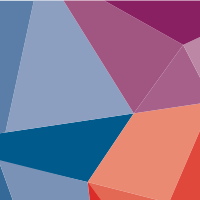Prof. Dr. Wolfgang Hock
Humboldt-Universität zu Berlin
Institut für deutsche Sprache und Linguistik
Wolfgang Hock’s research interests include historical and typological the comparison of ancient Indo-European languages as well as synchronic and diachronic description of phonological, morphological and lexical phenomena in individual languages, in particular the Baltic, Slavic, Albanian and Iranian branches. Emphasis is placed on Old Lithuanian texts (16th/17th c.), which are studied from a philological and linguistic perspective.
Projects
B02
Emergence and change of registers: The case of Lithuanian and Latvian
Contact
Humboldt-Universität zu Berlin, Dorotheenstraße 24, 10117 Berlin
(030) 2093-9622
wolfgang.hock@hu-berlin.de https://orcid.org/0009-0002-1549-6574
Publications & Presentations
Feulner, Anna Helene; Goymann, Frank; Hock, Wolfgang; Vanhala, Otso (2023) Register im älteren Baltischen: Die Postillen des Altlitauischen und Altlettischen In: Archivum Lithuanicum [ViVo] Lüdeling, Anke; Alexiadou, Artemis; Adli, Aria; Donhauser, Karin; Dreyer, Malte; Egg, Markus; Feulner, Anna Helene; Gagarina, Natalia; Hock, Wolfgang; Jannedy, Stefanie; Kammerzell, Frank; Knoeferle, Pia; Krause, Thomas; Krifka, Manfred; Kutscher, Silvia; Lütke, Beate; McFadden, Thomas; Meyer, Roland; Mooshammer, Christine; Müller, Stefan; Maquate, Katja; Norde, Muriel; Sauerland, Uli; Szucsich, Luka; Verhoeven, Elisabeth; Waltereit, Richard; Wolfsgruber, Anne; Zeige, Lars Erik (2020) Register: Language Users’ Knowledge of Situational-Functional Variation In: REALIS: Register Aspects of Language in Situation [DOI] [PDF] [ViVo] The Collaborative Research Center 1412 “Register: Language Users’ Knowledge of Situational-Functional Variation” (CRC 1412) investigates the role of register in language, focusing in particular on what constitutes a language user’s register knowledge and which situational-functional factors determine a user’s choices. The following paper is an extract from the frame text of the proposal for the CRC 1412, which was submitted to the Deutsche Forschungsgemeinschaft in 2019, followed by a successful onsite evaluation that took place in 2019. The CRC 1412 then started its work on January 1, 2020. The theoretical part of the frame text gives an extensive overview of the theoretical and empirical perspectives on register knowledge from the viewpoint of 2019. Due to the high collaborative effort of all PIs involved, the frame text is unique in its scope on register research, encompassing register-relevant aspects from variationist approaches, psycholinguistics, grammatical theory, acquisition theory, historical linguistics, phonology, phonetics, typology, corpus linguistics, and computational linguistics, as well as qualitative and quantitative modeling. Although our positions and hypotheses since its submission have developed further, the frame text is still a vital resource as a compilation of state-of-the-art register research and a documentation of the start of the CRC 1412. The theoretical part without administrative components therefore presents an ideal starter publication to kick off the CRC’s publication series REALIS. For an overview of the projects and more information on the CRC, see https://sfb1412.hu-berlin.de/.